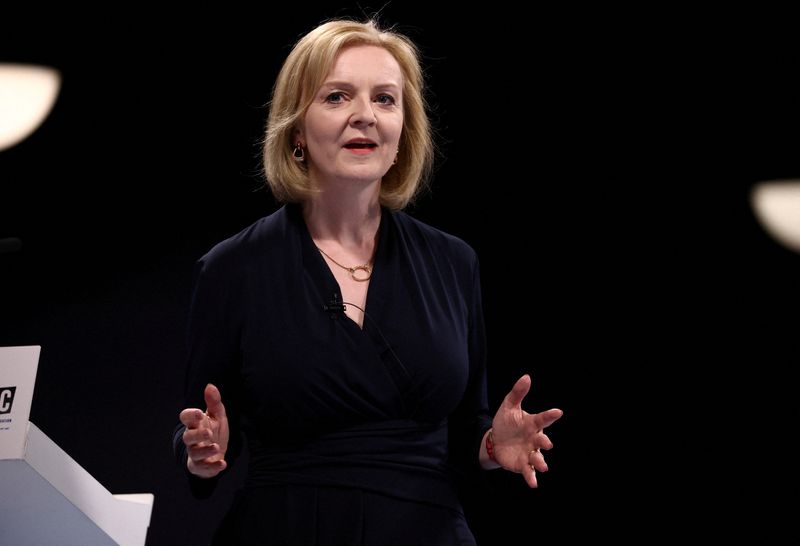By Geoffrey Smith
Investing.com -- Shares in U.K. utilities Centrica (LON:CNA) and SSE (LON:SSE) topped the FTSE 100 in morning trading in London on Thursday after the favorite in the race to become Conservative Party leader said she wasn't in favor of extending 'windfall taxes' to help households with unaffordable energy bills.
Speaking at the final hustings event of the leadership contest, Foreign Secretary Liz Truss said she wouldn't raise windfall taxes on energy companies, something that the opposition Labour Party has called for as the country braces for another massive rise in energy bills this winter.
Shares in Centrica, the owner of British Gas, rose 0.7%, while SSE shares rose 0.4% on a day when the broader market was in retreat, the FTSE 100 losing 1.5% by 05:10 ET (09:10 GMT).
Truss, who has enjoyed a 2:1 margin over her rival Rishi Sunak in some opinion polls ahead of next week's final choice by party members, has made a refusal to raise taxes the centerpiece of her campaign, aiming to capitalize on the unpopularity of the tax increases announced earlier this year by Sunak, the former Chancellor of the Exchequer.
In the hustings, she ruled out all new tax increases, not just a windfall tax on energy companies.
Sunak had announced a windfall levy on the profits of the oil and gas sector earlier in the summer to fund a 15 billion pound package of handouts and rebates aimed at easing the U.K.'s cost-of-living crisis. That came on top of an increase in National Insurance to cover the costs of a new scheme for funding social care for the elderly.
However, Sunak's measures came before the last week's decision by energy regulator Ofgem to raise the cap on typical fuel bills by another 80% to the annual equivalent of 3,549 pounds ($4,110) from October. A further big increase is likely in January under Ofgem's current formula.
Bloomberg reported earlier this week that the U.K. Treasury estimates energy companies could generate some 170 billion pounds in excess profits over the next two years, where 'excess' reflects the difference between expected profits given the state of energy markets before and after Russia's invasion of Ukraine. The Treasury said it "doesn't recognize" the figures.
